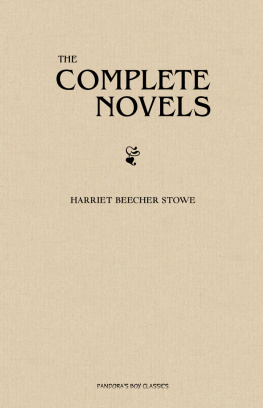Published by The History Press
Charleston, SC
www.historypress.com
Copyright 2020 by Peggi Medeiros
All rights reserved
The Grinnell Mansion. Courtesy of the National Register of Historic Places, Historic American Building Survey.
First published 2020
E-book edition 2020
ISBN 978.1.43966.926.6
Library of Congress Control Number: 2019954258
print edition ISBN 978.1.46714.170.3
Notice: The information in this book is true and complete to the best of our knowledge. It is offered without guarantee on the part of the author or The History Press. The author and The History Press disclaim all liability in connection with the use of this book.
All rights reserved. No part of this book may be reproduced or transmitted in any form whatsoever without prior written permission from the publisher except in the case of brief quotations embodied in critical articles and reviews.
For Carole Foster, who gave me Harriet,
and Nancy Souliere, my sister, who gave me everything else.
CONTENTS
FOREWORD
Still, New Bedford is a queer place. Ishmael thus punctuated his rolling commentary on the citys history and street life in the opening chapters of Moby Dick, recognizing what was evident to most of the citys visitors in the 1840s: New Bedford was an American original. Nowhere else could one find a city that was similarly shaped by a mix of economic and cultural extremes. In the nineteenth century, New Bedford was the center of the worlds whaling industry, a quintessentially American enterprise in which men armed with hand weapons set forth in wooden boatsordinarily for three to five yearsto hunt the largest creatures in the sea. This line of work was inherently perilous. Of the 787 whaling vessels that launched from New Bedford, 272 either sank or were destroyed, and their thousands of sailors were lost to the sea. Nevertheless, the industry drew thrill-seeking young men to New Bedford from across New England and beyond, and it deposited into the city countless sailors who had joined whaling voyages from the far corners of the then-known world. The live cannibals Ishmael encountered along his route were as much a part of the whaling industry as the many local sailors whose experiences and exposure to the world before the advent of modern communication technology gave them a broad perspective that enriched the citys civic life.
The physical demands of the industry were matched by the profits it generated. Thanks to the citys geographic advantages, as well as breakthrough financial and technological innovations, New Bedford became Americas wealthiest city by the 1850s and the home port to more than half the worlds whaling fleet. Some of the citys whaling merchants experienced sustained annual returns on investments that rivaled any in U.S. history. It is no wonder that Melville stood in awe of the citys gardens and patricianlike houses.
In curious contrast to its conspicuous opulence, antebellum New Bedford reflected the deep religiosity of the era. The leading whaling merchantswho counted themselves among Americas wealthiest familieswere members of the Society of Friends. More commonly known as the Quakers, the Society of Friends rejected the outward formalism of other Protestant sects and embraced outward appearances of austerity. The egalitarian zeal of the Quakers led to their formal support of abolition as early as the American Revolution, and this stance only intensified in the early years of the Republic.
The ethnic diversity of New Bedfords citizenrycoupled with the prevailing hostility in the city toward the institution of slavery and the intense demand for manual labormade New Bedford one of the Norths leading refuges for escaped slaves. New Bedford was a place where freed people could find employment, live safely and otherwise fit right in. One historian of the era dubbed New Bedford as Freedoms Gibraltar, and estimated that, by the eve of the Civil War, New Bedford had the most former slaves per capita of any northern city. New Bedfords views on race relations were so progressive that when one of those escaped slavesnone other than Frederick Douglassdecided to settle there in the late 1830s, he was struck by the existence of an African American population that was able to exercise real political power.
New Bedfords economic and political standings in America in the years before the Civil War serve as the backdrop for Peggi Medeiross examination of the relationship between Harriet Jacobs and some of New Bedfords leading families. At the intersection of this relationship is Jacobss groundbreaking memoir about the time she spent in slavery as a young girl. Though less heralded than the firsthand accounts of Frederick Douglass and Solomon Northup, Jacobss work stands as a monument to the countless untold stories of female slaves and the unimaginable depravities they endured. Her contribution to our modern understanding of slavery is invaluable, and her story stands as a testament to the power of the human spirit.
Harriet Jacobs in New Bedford builds on Medeiross early works and brings to light the lives and work of New Bedfords leading families at the height of the whaling industry and their roles in the broader American drama.
Jon Mitchell
ACKNOWLEDGEMENTS
This book would not have been possible without the extraordinary research of Jean Fagan Yellin. Her research and writing brought Harriet Ann Jacobs back to life and into the knowledge of the nation. No one can write about Harriet without paying tribute to her.
The Library of Congresss collection of American images is a national treasure. The Huntington Library owns the papers and photographs of Cornelia Grinnell Williss son, and it is there that I foundat lasta photograph of Cornelia that is not of a sad, wizened lady in a chair.
In New Bedford, Mayor Jon Mitchell and Katherine Saucier at city hall gave me invaluable and very appreciated help. Sue Dupont and Dr. Nina Szulewski at Highpoint kept me writing. Diane Gilbert at the Dartmouth Historical Preservation Society reminded me that history matters. My family, Denis and Missy, Melissa, Sue and Alayna, are always a joy.
INTRODUCTION
Harriet Jacobs was born on February 11, 1813, in Edenton, North Carolina, on Albermarle Sound. Her parents were Elijah Knox and Delilah Horniblow. As an enslaved woman, she had the rare gift of knowing her actual birth date, her parents and her brother, John. In comparison, her friend from Rochester, New York, Frederick Douglass, did not know the date of his birth; he spent his entire life returning to Maryland, desperately trying to solve his puzzle, but he never did. Cornelia Grinnell Willis was born in New Bedford on May 19, 1825, to Cornelius Grinnell Jr. and Eliza Tallman Russell. Cornelia was the youngest of ten children. Little did she know that her city was about to become the whaling capital of the world.
There was a twelve-year age difference between Harriet and Cornelia, but each girl suffered traumas in their childhoods. When she was six, Harriet realized that she was a slave who belonged to Margaret Horniblow. After Margarets death, Harriet became the possession of a perverted master. Cornelias trauma came when her father hanged himself in her familys barn when she was just five years old. She was later adopted by Joseph Grinnell and his wife, Sarah Russell Grinnell. Cornelias adoption meant that she was loved and cared for by both her fathers brother and her mothers sister.









